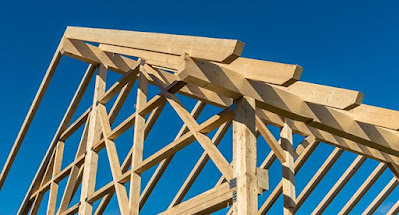Q: My wife and I bought a new house
and we suspect the basement may have flooded in the past. It's not my first
home, but it is my first basement, and I like to be prepared. If flooding
happens in my basement, will my homeowners' policy cover the damage?
A: The last thing any
homeowner expects or wants to see is water in the basement, but it's the type
of thing that can occur. Whether your incident will be covered under the policy
usually depends on what caused the damage. Here's how I think about questions
based on these situations.
Is there coverage if a pipe bursts?
A homeowner insurance policy will
typically cover structural damage caused by "sudden and accidental"
events that occur inside the house, like a burst pipe or a broken washing
machine. This will likely cover the walls and carpeting. Depending on the
amount of personal property coverage in your policy, some damaged belongings
may be covered as well. If you're in an apartment building and a water overflow
causes damage to someone else's property, your liability insurance will likely
cover it.
What if it's damage from flooding
during a storm?
Damage from a weather event outside
your house is another thing entirely, which I make clear to customers when
helping them understand their coverage options.
Homeowners policies in general do
not provide coverage for flooding that comes from rising water levels due to a
hurricane, rainstorm, melting snow, etc. You can, however, purchase separate
flood insurance via the National Flood Insurance Program. Your insurance agent
can help you with the purchase.
 Only about 12 percent of homeowners have a flood insurance
policy
Only about 12 percent of homeowners have a flood insurance
policy ![]() according to the Insurance Information Institute. Some
mortgage lenders require that you purchase flood insurance if you live in a
flood-prone area, but you might want to consider purchasing such a policy
regardless of where you live. Floods are the most common national disaster in
the U.S., and more than 20 percent of flood claims occur in properties that
aren't in a high-risk flood zone, according to the National Flood Insurance
Program
according to the Insurance Information Institute. Some
mortgage lenders require that you purchase flood insurance if you live in a
flood-prone area, but you might want to consider purchasing such a policy
regardless of where you live. Floods are the most common national disaster in
the U.S., and more than 20 percent of flood claims occur in properties that
aren't in a high-risk flood zone, according to the National Flood Insurance
Program ![]()
Am I covered if water seeps into my
basement from the ground?
Sometimes groundwater gets into a
basement through cracks in your foundation or due to inadequate drainage around
your house requiring maintenance. Damage typically is not covered in those
cases.
You seem like the type of homeowner
who knows this already, but regular maintenance and upkeep are also essential
to help reduce your chances of needing to file a claim at all. Chores like
regularly inspecting your appliances, draining outdoor faucets and knowing
where your emergency shut-off valve is located can help keep you on top of emergency
situations before they happen.
Given that water-related damage can
occur, it's important to make sure that you understand what is and isn't
covered under your current policy. If you have questions, or want to learn
about available insurance options, a conversation with an agent might be
beneficial so you can get the coverage you want.
This article was brought to you courtesy of Farmers Insurance agent, Jonathan Priest with an office at 57 Tandberg Trail, Suite 7, Windham. <
The information contained in this page is provided for general informational
purposes only. The information is provided by Farmers® and while we endeavor to
keep the information up to date and correct, we make no representations or
warranties of any kind, express or implied, about the completeness, accuracy,
reliability, suitability, or availability with respect to this article or the
information, products, services or related graphics, if any, contained in this
article for any purpose. The information is not meant as professional or expert
advice, and any reliance you place on such information is therefore strictly at
your own risk.




